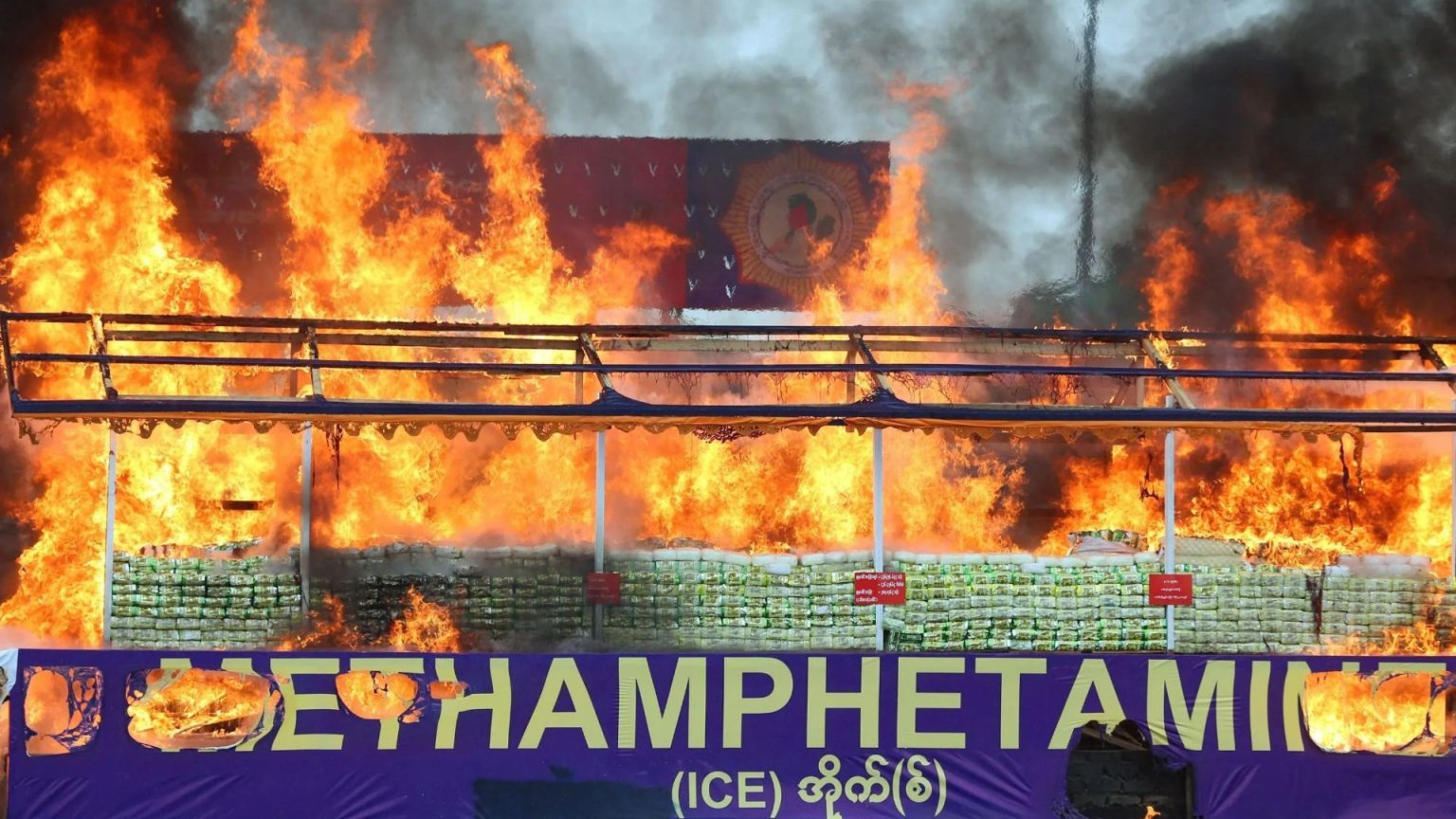Myanmar, once revered as the Golden Land, a jewel of Southeast Asia with pristine beaches, towering mountains, and resplendent temples, has tragically descended into a hub of organized crime. The 2021 military coup shattered the nation’s fragile peace, igniting a civil war that has killed thousands, displaced millions, and reduced entire towns to rubble. This chaos has created a breeding ground for illicit activities, transforming Myanmar into a haven for warlords, human traffickers, drug syndicates, and cybercriminals.
The nation’s lucrative opium poppy fields, ironically dubbed the “peace flower,” have fueled a violent struggle for control of the drug trade. Myanmar is now the world’s second-largest opium producer and the region’s largest heroin supplier. This surge in drug production is facilitated by the Burmese military, which has long profited from the trade, using it to fund its operations and consolidate power. Before the coup, poppy cultivation was clandestine, but now, with the absence of government oversight, fields flourish openly, marking a “best time ever for opium” for some farmers. This has not only exacerbated the drug crisis within Myanmar but also contributes significantly to the global narcotics trade.
Beyond heroin, Myanmar has become a major producer of synthetic drugs like methamphetamine, ketamine, and fentanyl. Jungle laboratories churn out these substances, driving down street prices to alarmingly low levels. A pink pill of methamphetamine and caffeine, known as yaba, can cost less than a bottle of water, fueling widespread addiction among the local population. This easy access to cheap drugs is deliberately allowed by the military in ethnic states as a means of suppressing resistance and controlling the population, while usage is not tolerated in central Myanmar.
The criminal landscape extends far beyond drugs. Online scam “factories” have proliferated, trapping locals and trafficked victims in a web of cybercrime. These individuals are forced to participate in sophisticated scams, preying on vulnerable individuals worldwide through romance scams, investment fraud, and cryptocurrency schemes. This “pig butchering” tactic involves building trust with victims before ultimately defrauding them of their savings. Thousands of foreigners are estimated to be enslaved in this cybercrime network, enduring horrific conditions and facing brutal consequences if they resist.
The illegal gambling industry further fuels Myanmar’s descent into lawlessness. Shwe Kokko New City, a sprawling urban development on the border with Thailand, has earned the moniker “mini Las Vegas,” becoming a hub for casinos catering primarily to Chinese nationals. This burgeoning gambling scene is intricately linked to human trafficking and online scams, creating a complex criminal ecosystem where exploitation and illicit finance thrive. The unchecked growth of this “mini Vegas” is a stark testament to the military’s complicity in organized crime, allowing it to flourish under their protection and profiting from its existence.
The Burmese military’s involvement in these criminal enterprises is deeply rooted in the nation’s history of ethnic conflict. Following the 1988 coup, the military struck deals with ethnic armed groups, granting them autonomy in exchange for control of natural resources and allowing the drug trade to flourish. This strategy of divide and rule has further destabilized the country and empowered criminal organizations. The military’s complicity has transformed Myanmar into a high-risk jurisdiction for money laundering and drug trafficking, deterring legitimate businesses and exacerbating the nation’s economic woes. The global financial system now views Myanmar with extreme caution, further isolating the country and hindering any potential for economic recovery.
The consequences of this rampant criminality are devastating for the people of Myanmar. They are losing their land, livelihoods, and freedom, forced into labor or silenced by fear. Criminal groups, often led by ruthless individuals with scant regard for human rights, operate with impunity, further oppressing the population. The ongoing conflict has created a power vacuum that these groups exploit, perpetuating a cycle of violence and corruption. The international community must recognize the severity of the crisis in Myanmar and take decisive action to address the root causes of this pervasive organized crime, holding the military accountable and supporting the efforts of those striving for peace and democracy. The future of the Golden Land hangs in the balance, and the world cannot stand idly by as it descends further into darkness.


